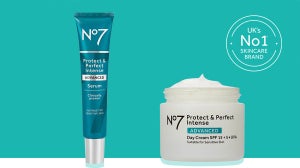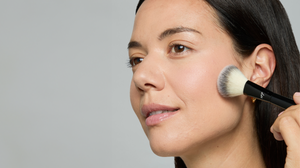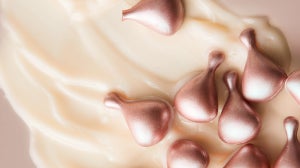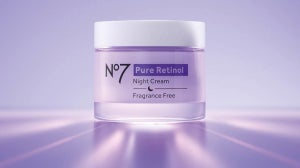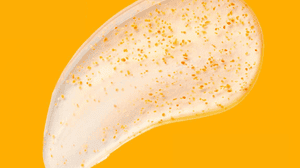
Can’t stop scratching? The itchiness of eczema & psoriasis can be relentless, but there are a number of ways you can soothe your symptoms. Keep reading to discover some key self-care practices to get some much needed respite from the itch
Eczema and psoriasis are common skin conditions that affect millions of people worldwide. However, that fact doesn’t help so much when you’re the one dealing with the seemingly endless itching and scratching that both conditions can cause.
Here we’ll delve into the causes of eczema and psoriasis itchiness, explore why it tends to worsen at night and provide some practical tips to help soothe your skin.
Why do eczema & psoriasis cause itching?
Some people find that eczema and psoriasis causes itchy, inflamed and often dry rashes and patches on the skin. While both are inflammatory disorders of the skin, often caused by genetic and immune system factors, there can be environmental triggers that can exacerbate both conditions leading to flares and increased itchiness.
Eczema: the itch factor
Atopic eczema, also known as atopic dermatitis, is linked to an increased inflammatory and allergy response in the skin cells and immune system. This heightened sensitivity to environmental triggers can lead to flare-ups, resulting in itching, redness and irritation. The constant urge to scratch can further worsen the condition, leading to sore, weeping and even bleeding skin.
Psoriasis: the overactive immune system
Psoriasis is a long-term skin condition driven by an overactive immune system. This hyperactivity speeds up the skin replacement process, causing the body to replace skin cells in just a few days instead of the usual 21 to 28 days. This rapid cell turnover creates raised and often itchy patches on the skin, known as plaques. The itching in psoriasis can be severe, with sufferers also experiencing stinging and burning sensations.
Why does my skin itch more at night?
Feeling uncomfortably itchy can really interfere with you getting enough sleep, and many people with eczema or psoriasis notice that their skin tends to itch even more intensely at night. There are a number of reasons why this can happen.
Lack of hydration: Your skin loses more water at night due to the fact you aren't drinking to stay hydrated. This can cause the skin to become drier and therefore lead to tightness, itching and irritation.
Increased temperature & blood flow: During sleep, our body temperature rises, leading to increased blood flow to the skin's surface. This heightened circulation may trigger itching, especially if your skin is already irritated with eczema or psoriasis.
No distractions: During the day, we’re engaged in various activities that divert our attention from itching. At night, when we’re trying to relax and fall asleep, the lack of distractions can make us more aware of the itching sensation.
Temperature: Indoor heating or air conditioning can reduce humidity levels in your bedroom, leading to drier air. Dry air can lead to dry skin and this in turn leads to itching.
Feeling stressed about sleep: Itchiness at night, and the lack of sleep it can cause, often leads to a viscous cycle of increased stress at bedtime. The more we become worried that the itchiness will keep us awake, the higher our stress levels ramp up and with everyday stress being a known factor in causing flare ups of both eczema and psoriasis, the itchiness may ramp up too.
What can I do to reduce itching & scratching?
Alongside working with your healthcare professional on a treatment plan for your eczema or psoriasis, there are several lifestyle and self-care strategies you can implement which may help alleviate symptoms and reduce itching and scratching:
Moisturise regularly: Keeping the skin well-hydrated can help reduce itching and discomfort. Using emollients (a moisturising treatment to help soothe the skin) regularly, particularly after bathing or showering can help prevent patches of irritation and flare-ups. Be sure to speak to your GP or pharmacist before using any emollients to find a product that’s suitable for you.
Don’t wash with soap: Bathing and washing with a moisturising emollient instead of soap or shower gel is very important to help maintain the skin’s natural barrier.
Keep your cool: Ensuring the temperature of your bedroom is kept on the cool side will help stop overheating at night that can lead to increased itchiness. Making sure your bed linen is breathable and made from natural materials such as cotton or silk can help also. This counts for clothing, too.
Avoid triggers: It can be helpful to keep a diary to track potential triggers such as foods, allergens, products and environmental factors that might be making the itching flare up. Once you’ve identified these things, you can try to avoid or minimise exposure to them where possible.
A healthy diet and lifestyle: Eating a balanced diet rich in fruits, vegetables, whole grains and lean proteins can help to support overall health.
Stress management: Practice techniques to reduce everyday stress such as yoga, meditation or deep breathing exercises to minimise emotional triggers.
Keep nails trimmed: Short, clean nails can reduce the risk of infection and skin damage during itching flare-ups.
Laundry: Wash clothes with a non-biological washing powder and ensure laundry is rinsed well to remove detergent residues, as these can cause further itching and irritation on the skin.
Take care with the sun: Excessive sun exposure can lead to irritation and inflammation of the skin leading to heightened itchiness. Always use a broad spectrum sunscreen with a minimum SPF 30 and take care not to spend too much time in hot sunshine.
Eczema and psoriasis can be challenging to live with. However, by implementing some of the self-care strategies listed above, you can help reduce itching and scratching, leading to a better quality of life.
Remember that seeking medical advice and adhering to treatments from your healthcare professional is essential to managing both conditions. Speak to your GP or pharmacist about managing symptoms of and living with eczema and psoriasis.

Related Articles



